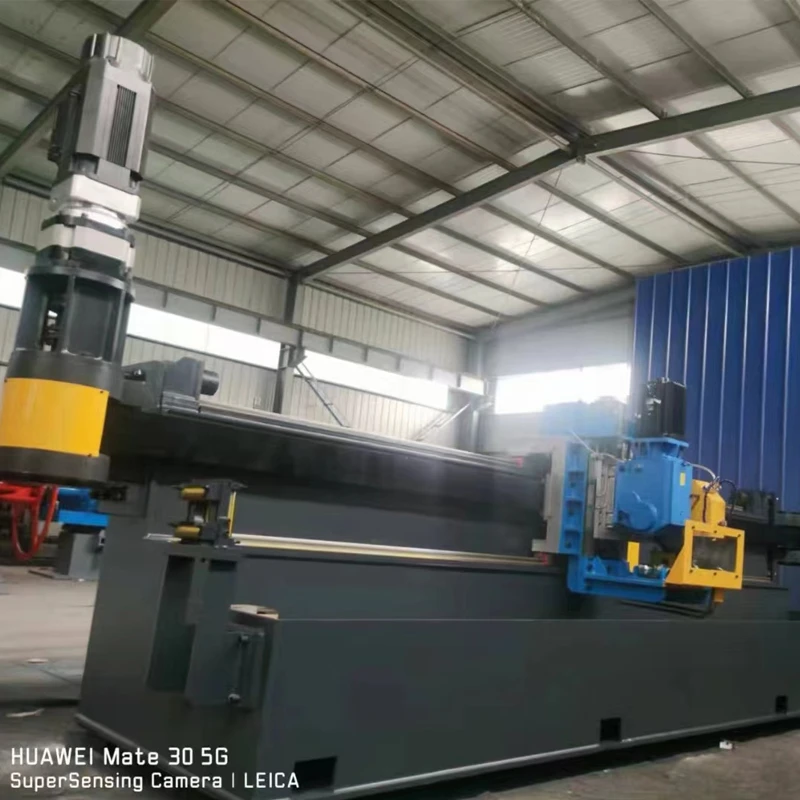Innovative Roll Forming Machines and Custom Die Manufacturing Solutions
The Essentials of Roll Forming Machine and Die Manufacturing
Roll forming is a well-established metal shaping process that involves the continuous bending of a long strip of metal, typically sheet or coil material, into a desired cross-sectional profile. This manufacturing technique is widely used in various industries for creating components such as building materials, automotive parts, and structural elements. At the heart of this process lies the roll forming machine and die manufacturing, which play crucial roles in ensuring efficiency, precision, and versatility in production.
Understanding Roll Forming Machines
A roll forming machine is an intricate piece of equipment designed to transform flat metal strips into specific shapes by using a series of rollers. The process begins with feeding the flat metal through a series of specially designed rollers that gradually bend and shape the material. These machines are typically modular, allowing for flexibility in design, and can be customized to produce various profiles, from simple shapes to complex geometries.
One of the primary advantages of roll forming is its efficiency. The continuous nature of the process allows for high-speed production with minimal waste. Unlike other metal forming techniques, roll forming can achieve longer lengths of material in one operation, minimizing the need for welding or cutting after the initial shape is created. This can lead to significant cost savings and a streamlined manufacturing process, making roll forming a preferred choice for many industrial applications.
Die Manufacturing A Critical Component
Die manufacturing is an integral part of the roll forming process. The role of dies is to guide the metal strip as it passes through the rollers, ensuring that each section is formed accurately according to the desired specifications. High-quality dies are essential for the overall performance of the roll forming machine, as they directly affect the quality and consistency of the finished product.
The die manufacturing process itself requires a high level of expertise and precision. Typically made from durable materials, dies must withstand the significant stress and wear from the continuous shaping of metal. Engineers and designers often utilize advanced computer-aided design (CAD) software to create precise die geometries that correspond to the desired product. The manufacturing of these dies often involves CNC machining, which ensures that each die meets the exact specifications required for high-quality production.
roll forming machine & die manufacturing

Innovations in Roll Forming Technology
Recent advancements in roll forming technology and die manufacturing have opened new avenues for productivity and design capabilities. Automated systems, for instance, allow for the continuous monitoring and adjustment of the machinery, optimizing the process in real time. This capability enhances production efficiency and ensures that the quality of the formed products remains consistently high.
Additionally, the integration of software solutions capable of simulating the roll forming process can aid in the design phase. These tools can forecast potential issues and optimize die designs before physical production begins, further reducing material waste and manufacturing time.
Industry Applications
The applications of roll forming and die manufacturing are extensive. In the construction industry, roll-formed products such as metal roofing, wall panels, and structural support elements are critical components of many buildings. The automotive industry relies on roll forming for producing everything from chassis components to exterior body parts, capitalizing on the lightweight yet durable nature of formed metal.
Furthermore, the HVAC industry benefits from roll forming machines to create ductwork and other ventilation components, where precision and efficiency are of utmost importance. The versatility of roll forming makes it suitable for a wide array of industries, each demanding unique shapes and specifications.
Conclusion
In summary, roll forming machine and die manufacturing represent a vital intersection of efficiency, technology, and precision in modern manufacturing. As industries continue to evolve and demand more innovative solutions, advancements in roll forming technology and die production will play an essential role in meeting these requirements. Whether in automotive, construction, or any other sector, the future of roll forming promises greater capabilities, leading to enhanced productivity and quality in metal fabrication.
-
High Frequency Straight Seam Welded Pipe Production Line-BzZhou Xinghua Machinery Equipment Manufacturing Co., LTD.|Precision Engineering&CustomizationNewsJul.29,2025
-
High-Frequency Straight Seam Welded Pipe Production Line-BzZhou Xinghua Machinery Equipment Manufacturing Co.,LTD.|Line Pipe Steel&Welded Gas PipeNewsJul.29,2025
-
High Frequency Straight Seam Welded Pipe Production Line - BzZhou Xinghua|Steel Pipe Manufacturing, High-Frequency WeldingNewsJul.29,2025
-
Precision Flying Saw & Shear Machines | High-Speed CuttingNewsJul.25,2025
-
Welded Pipe Production Line - BzZhou Xinghua Machinery Equipment Manufacturing Co., LTD.|High-Frequency Straight Seam Welding&Precision EngineeringNewsJul.22,2025
-
Welded Pipe Production Line - BzZhou Xinghua Machinery|High-Efficiency, Precision EngineeringNewsJul.21,2025


